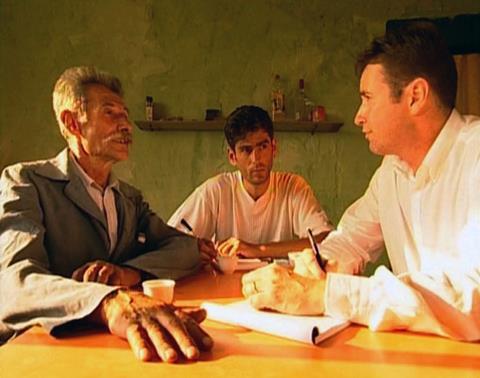Bringing victims before the ICTY is a vast logistical exercise that opens emotional scars but the tribunal’s witness support section aims to ease the trauma.
Witnesses are at the heart of everything we do at the International Criminal Tribunal for the former Yugoslavia. Many overcome enormous psychological, emotional and logistical difficulties in order to testify. The Victims and Witnesses Section (VWS) of the tribunal aims to create an environment in which testifying can be a positive experience and is dedicated to supporting and protecting all witnesses, whether they are called by the prosecution, defence or chambers.
The range of services that VWS provides underlines the vast logistical exercise in bringing people from all over the world to The Hague to testify. Although many victim witnesses are now seasoned visitors to The Hague, their first testimony often meant their first trip abroad, first time on a plane, first night in a hotel… and so on. Add to this list that some witnesses speak for the first time about their wartime experiences whilst in court, and you begin to grasp what it means to come and testify at the ICTY and the level of support required.
This support begins for some witnesses before they have left home. Visas and in some cases even passports are applied for; care is organised for children, elderly relatives, or farm animals left behind. Vulnerable witnesses can be picked up at home by VWS and accompanied during their trip.
Once in The Hague, VWS aims to assess and then meet the individual needs of the witnesses. All witnesses are seen regularly throughout their stay, but some need a more supportive presence and care, while others prefer more space and solitude. Some witnesses feel the need to share the burden of their trauma, while others enjoy small talk and company in their free time. VWS aims to be flexible – one team member even recalls scouring The Hague with one witness for a particular item of fishing tackle to take home.

Once in court, our VWS staff are unseen but present, monitoring the witness via the courtroom video feed for signs of stress and offering coffee and respite during the breaks. VWS’s goal is to minimise the negative impact of testifying but also where possible to maximise the healing potential of the experience.
An assistant recalls a victim witness who collapsed in the courtroom following a flashback. As she was comforted in the waiting room by VWS support staff, their priority was to assist the witness and enable her to return to court and complete her testimony. VWS has also seen how testifying can ignite a spark of life in people who have felt helpless for many years, and grant them a form of closure.
So what does it take to work in VWS? Empathy is top of the list. Many of our staff are from the former Yugoslavia and lived through the conflicts. They describe a connection that develops with witnesses who can be victims of war, fact or expert witnesses, or even alleged war criminals testifying in their own trial or in another case.
One VWS staff member remembers a group of witnesses who felt unable to work with her due to her ethnicity. She persevered, and one elderly gentleman from the group found it within himself to break the ice. By the end of their visit, jokes abounded about marrying her off to their sons. It’s not for nothing that many witnesses say the ICTY is the last place left in the world where the spirit of the former Yugoslavia lives on.
The VWS has provided support to more than 4,500 witnesses on over 8,000 visits to The Hague, since the creation of the tribunal in 1993.
Kate Mackintosh is deputy registrar at the ICTY
Co-author Joanna Ellis Adwan is press officer at the ICTY































No comments yet